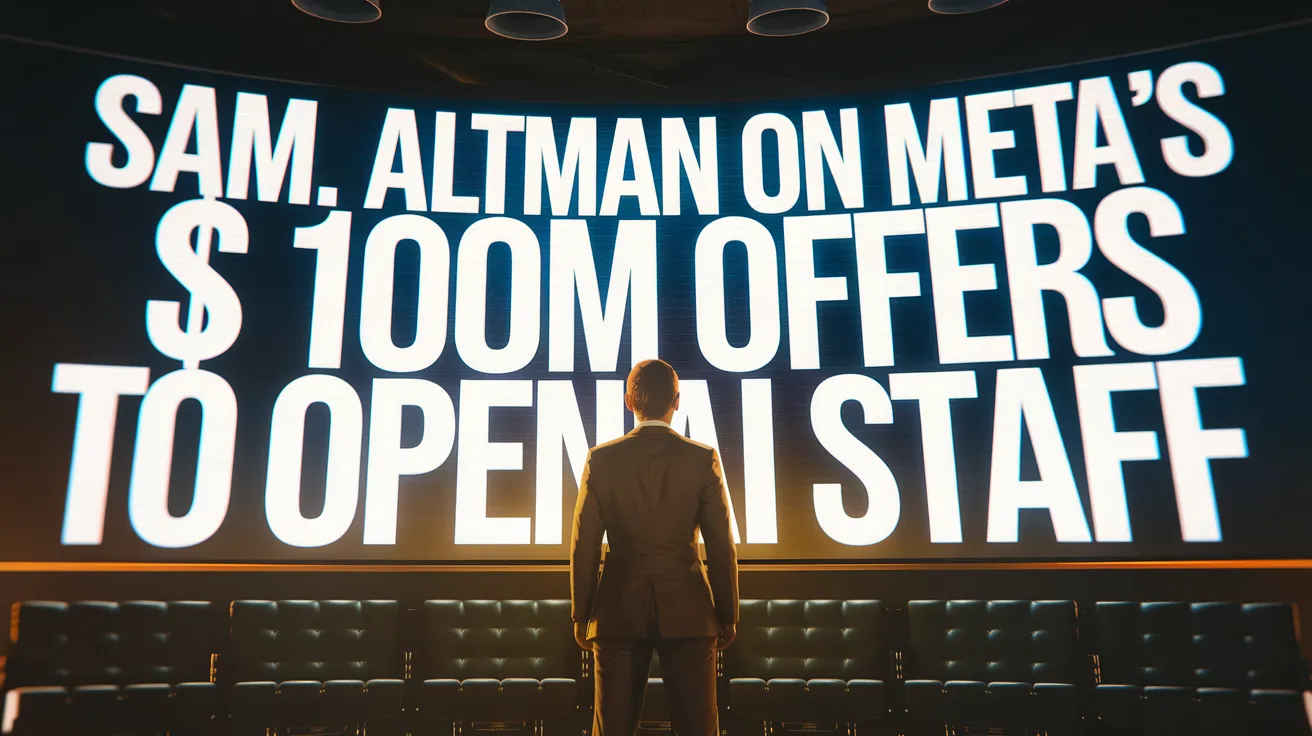Sam Altman on Meta’s $100M Offers to OpenAI Staff

In a recent discussion on the “Uncapped” podcast, OpenAI’s CEO Sam Altman revealed that Meta Platforms has attempted to attract OpenAI employees by offering staggering bonuses, reportedly as high as $100 million, along with even more generous annual compensation packages. However, Altman stated that, thus far, none of OpenAI’s top talents have accepted Meta’s offers.
Altman explained that he believes Meta considers OpenAI its primary competitor, noting that the company’s aggressive attempts to hire personnel indicate its intent to bolster its artificial intelligence efforts, which have reportedly not met expectations. The CEO expressed respect for Meta’s ambition to innovate, although he acknowledged the challenges they face in their current AI initiatives.
Meta’s Ambitious AI Strategy
Mark Zuckerberg, the CEO of Meta, is actively seeking to build a formidable AI team for the company’s “superintelligence” lab. This initiative comes alongside substantial investments into Meta’s AI research division, which oversees the development of its Llama series of open-source large language models.
Meta has faced setbacks as it delayed the launch of its latest flagship AI model due to concerns regarding its performance capabilities. In light of this, reports indicate that Zuckerberg’s frustration with the current status of Meta in the AI domain has led him to consider investing billions to attract top-tier talent.
New Additions to Meta’s AI Team
Recently, Alexandr Wang, founder of Scale AI, made headlines by departing for Meta as part of a significant agreement in which Meta acquired a 49% stake in Scale AI for $14.3 billion. Wang is expected to lead efforts in research aimed at developing AI with superintelligent capabilities, further suggesting that Meta is serious about its AI ambitions.
Additionally, Meta has successfully recruited other prominent figures, including Jack Rae from Google’s DeepMind, indicating a concerted effort by Zuckerberg to bolster his AI talent pool personally.
Criticism of Poaching Strategy
While discussing these developments, Altman expressed skepticism about Meta’s approach of offering large upfront bonuses as a recruitment strategy, arguing that such tactics do not foster a culture conducive to innovation and can ultimately detract from the real work. He warned that merely trying to replicate OpenAI’s success is unlikely to achieve desired results, suggesting a need for authentic innovation rather than imitation.
Insights on Meta’s AI Contributions
Despite Altman’s criticisms, some analysts argue that Meta’s contributions to the AI field should not be underestimated. Daniel Newman, CEO of Futurum Group, noted that Meta has played a pivotal role in laying the groundwork for open-source AI development, an integral part of contemporary AI efforts. Meta’s advancements, particularly with its Llama software, have enabled a vast array of third-party applications to flourish, underscoring the company’s significance in the AI landscape.
As the competition for AI talent intensifies, it remains to be seen how these recruitment strategies will impact the broader AI ecosystem and whether Meta can ultimately carve out a competitive advantage in developing next-generation AI technologies.